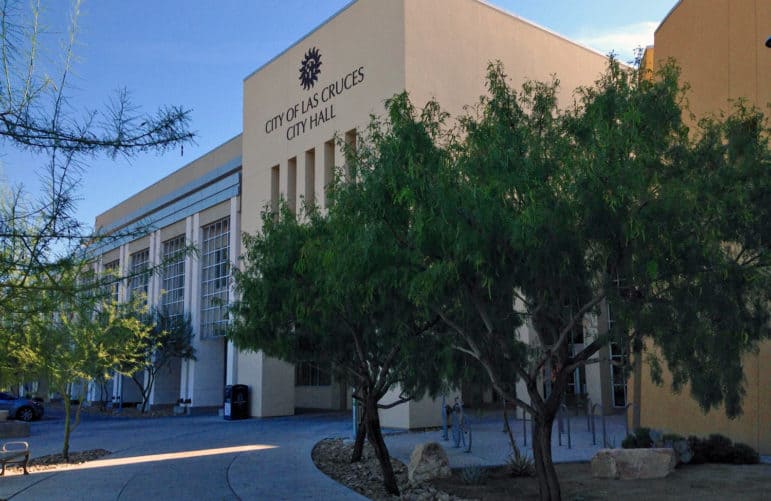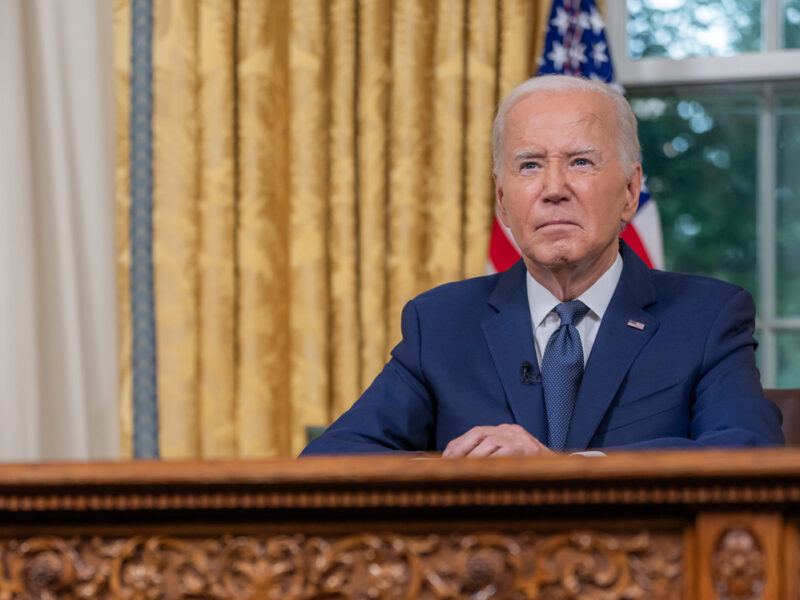Las Cruces’ mayor pro tem recently did something that elected officials don’t do often.
She owned up to a big mistake — one that cost people their health and maybe their lives.
Johana Bencomo made the admission after the city notified Memorial Medical Center that it may be in breach of its public land lease by denying care to people in need.

“Truthfully, at one point it used to feel like, ‘what could City Council really do about our very broken for-profit healthcare system?’ It all felt too big, and I thought that’s what this conversation was about,” the Las Cruces Bulletin quoted Bencomo as saying at an Aug. 30 news conference. “But by disempowering our governing body, we disempowered our community, and we disempowered patients’ voices.”
It took an investigation by NBC News to shake some sense into the city and county officials charged with overseeing the hospital. The news organization reported in June that the for-profit Lifepoint Health, which is backed by private equity, had turned away cancer patients in a possible violation of the hospital’s lease.
Bencomo’s words brought me back to the disempowering way in which councilors and the mayor hired a new city manager earlier this year in violation of the state Open Meetings Act (the exception was Councilor Cassie McClure, who objected to the process). These two issues are intertwined.
Rather than rehash details I’ve already written about, I’ll share that the state Department of Justice, which is investigating the city manager hiring at the request of the Bulletin, appears to be on track to confirm the violation of the Open Meetings Act. In a letter it sent to city officials on Aug. 30, the director of the DOJ’s Government Counsel and Accountability Division, Blaine Moffatt, requested explanations, communications and other documents related to the city manager hiring process.
“The NMDOJ is concerned that the City Council’s process may have been non-compliant with the OMA,” Moffatt stated. His letter notes that it appears the Council discussed and made decisions related to the hiring outside of open meetings at several points in the process. The law requires that all decisions and most discussions take place in public.
The Open Meetings Act mandates that all of us in New Mexico “are entitled to the greatest possible information regarding the affairs of government and the official acts of those officers and employees who represent them.”
If you don’t know what your government is doing because its leaders are keeping secrets, you can’t exercise your First Amendment right to petition your government. The Open Meetings Act is a key that unlocks the door that gives us access.
Government policymaking bodies that disregard the Act disempower the people they were elected to represent by taking away that key.
In a representative democracy, the relationship between citizens and their elected officials is symbiotic. An elected body that involves citizens in its decisions makes people feel heard and important. That empowers those people to speak up, and they provide officials with the information they need to understand and act on their behalf. They also pressure officials to do just that.
In an era of dark money in politics and private equity firms gobbling up hospitals and houses and newspapers, government officials who aren’t in empowered relationships with the citizens they represent default to hearing the wealthy and powerful above everyone else and end up giving them preference. Even the most progressive officials will fall into this pattern, as the Las Cruces City Council has proven.
The result is a catastrophe like the situation we have with the hospital.
The City Council has long struggled to take the requirements of the Open Meetings Act to heart. The most recent example is a Council that believed it knew what the community needed in a city manager without discussing the issue in front of the public, let alone with the public. Officials missed an opportunity to connect with city residents, rushed a process that wasn’t as robust or thoughtful as it would have been with public involvement, and violated state law.
Elected bodies that cut citizens out of the decision-making process rob themselves of the rich diversity of opinion and life experience of the folks they represent. In doing so, they actually disempower themselves.
Without an activated citizenry at their sides, the city’s leaders, by Bencomo’s own admission, felt powerless against a hospital backed by private equity.
It’s good to see city leaders finally defend citizens. It’s sad that it took being shamed by a national news organization to do it. It appears the city is about to be shamed again, this time into compliance with the Open Meetings Act by the DOJ. Moffatt requested a response from the city within a week, and then granted the city’s request for an additional seven days, until Sept. 13. DOJ appears ready to act.
I hope other city officials share Bencomo’s stated resolve to do better. I also hope she means it. There’s a way to build an empowered relationship between city government and citizens:
Develop a deeper respect for the Open Meetings Act and other transparency and accountability laws. Take to heart the legal requirement to do the public’s business in full view of the public. Embrace the spirit of the law by inviting citizens into the decision-making process. Show up with an inquisitive attitude. Folks will respond by engaging, and over time the city will build a base that is citizen-focused and citizen-driven.
That will give the city the ability to spot areas where residents are being abused more quickly and the power to respond with the zeal people need.
Las Cruces can be an empowered city. Changing officials’ attitudes about the relationship between government and the folks it serves is the starting point.
